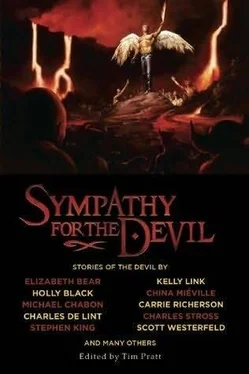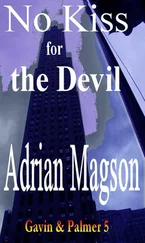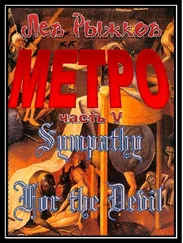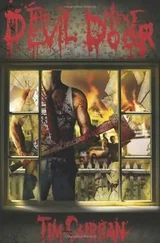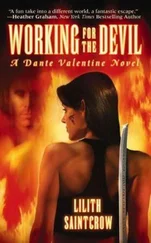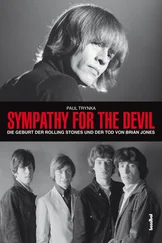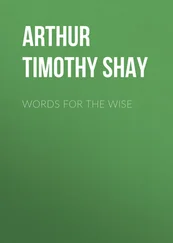Martin was on the road for four-five years before he realized he wasn’t getting anyplace. Of course he’d tried his hand at a lot of things-picking fruit in Oregon, washing dishes in a Montana hash-house, stealing hubcaps in Denver and tires in Oklahoma City-but by the time he’d put in six months on the chain gang down in Alabama he knew he had no future drifting around this way on his own.
So he tried to get on the railroad like his daddy had and they told him that times were bad. But Martin couldn’t keep away from the railroads. Wherever he traveled, he rode the rods; he’d rather hop a freight heading north in sub-zero weather than lift his thumb to hitch a ride with a Cadillac headed for Florida. Whenever he managed to get hold of a can of Sterno, he’d sit there under a nice warm culvert, think about the old days, and often as not he’d hum the song about That Hell-Bound Train. That was the train the drunks and the sinners rode-the gambling men and the grifters, the big-time spenders, the skirt-chasers, and all the jolly crew. It would be really fine to take a trip in such good company, but Martin didn’t like to think of what happened when that train finally pulled into the Depot Way Down Yonder. He didn’t figure on spending eternity stoking boilers in Hell, without even a Company Union to protect him. Still, it would be a lovely ride. If there was such a thing as a Hell-Bound Train. Which, of course, there wasn’t.
At least Martin didn’t think there was, until that evening when he found himself walking the tracks heading south, just outside of Appleton Junction. The night was cold and dark, the way November nights are in the Fox River Valley, and he knew he’d have to work his way down to New Orleans for the winter, or maybe even Texas. Somehow he didn’t much feel like going, even though he’d heard tell that a lot of those Texas automobiles had solid gold hubcaps.
No sir, he just wasn’t cut out for petty larceny. It was worse than a sin-it was unprofitable, too. Bad enough to do the Devil’s work, but then to get such miserable pay on top of it! Maybe he’d better let the Salvation Army convert him.
Martin trudged along humming Daddy’s song, waiting for a rattler to pull out of the Junction behind him. He’d have to catch it-there was nothing else for him to do.
But the first train to come along came from the other direction, roaring toward him along the track from the south.
Martin peered ahead, but his eyes couldn’t match his ears, and so far all he could recognize was the sound. It was a train, though; he felt the steel shudder and sing beneath his feet.
And yet, how could it be? The next station south was Neenah-Menasha, and there was nothing due out of there for hours.
The clouds were thick overhead, and the field mists rolled like a cold fog in a November midnight. Even so, Martin should have been able to see the headlight as the train rushed on. But there was only the whistle, screaming out of the black throat of the night. Martin could recognize the equipment of just about any locomotive ever built, but he’d never heard a whistle that sounded like this one. It wasn’t signaling; it was screaming like a lost soul.
He stepped to one side, for the train was almost on top of him now. And suddenly there it was, looming along the tracks and grinding to a stop in less time than he’d believed possible. The wheels hadn’t been oiled, because they screamed too, screamed like the damned. But the train slid to a halt and the screams died away into a series of low, groaning sounds, and Martin looked up and saw that this was a passenger train. It was big and black, without a single light shining in the engine cab or any of the long string of cars; Martin couldn’t read any lettering on the sides, but he was pretty sure this train didn’t belong on the Northwestern Road.
He was even more sure when he saw the man clamber down out of the forward car. There was something wrong about the way he walked, as though one of his feet dragged, and about the lantern he carried. The lantern was dark, and the man held it up to his mouth and blew, and instantly it glowed redly. You don’t have to be a member of the Railway Brotherhood to know that this is a mighty peculiar way of lighting a lantern.
As the figure approached, Martin recognized the conductor’s cap perched on his head, and this made him feel a little better for a moment-until he noticed that it was worn a bit too high, as though there might be something sticking up on the forehead underneath it.
Still, Martin knew his manners, and when the man smiled at him, he said, “Good evening, Mr. Conductor.”
“Good evening, Martin.”
“How did you know my name?”
The man shrugged. “How did you know I was the Conductor?”
“You are, aren’t you?”
“To you, yes. Although other people, in other walks of life, may recognize me in different roles. For instance, you ought to see what I look like to the folks out in Hollywood.” The man grinned. “I travel a great deal,” he explained.
“What brings you here?” Martin asked.
“Why, you ought to know the answer to that, Martin. I came because you needed me. Tonight, I suddenly realized you were backsliding. Thinking of joining the Salvation Army, weren’t you?”
“Well-” Martin hesitated.
“Don’t be ashamed. To err is human, as somebody-or-other-once said. Reader’s Digest, wasn’t it? Never mind. The point is, I felt you needed me. So I switched over and came your way.”
“What for?”
“Why, to offer you a ride, of course. Isn’t it better to travel comfortably by train than to march along the cold streets behind a Salvation Army band? Hard on the feet, they tell me, and even harder on the eardrums.”
“I’m not sure I’d care to ride your train, sir,” Martin said. “Considering where I’m likely to end up.”
“Ah, yes. The old argument.” The Conductor sighed. “I suppose you’d prefer some sort of bargain, is that it?”
“Exactly,” Martin answered.
“Well, I’m afraid I’m all through with that sort of thing. There’s no shortage of prospective passengers anymore. Why should I offer you any special inducements?”
“You must want me, or else you wouldn’t have bothered to go out of your way to find me.”
The Conductor sighed again. “There you have a point. Pride was always my besetting weakness, I admit. And somehow I’d hate to lose you to the competition, after thinking of you as my own all these years.” He hesitated. “Yes, I’m prepared to deal with you on your own terms, if you insist.”
“The terms?” Martin asked.
“Standard proposition. Anything you want.”
“Ah,” said Martin.
“But I warn you in advance, there’ll be no tricks. I’ll grant you any wish you can name-but in return, you must promise to ride the train when the time comes.”
“Suppose it never comes?”
“It will.”
“Suppose I’ve got the kind of a wish that will keep me off forever?”
“There is no such wish.”
“Don’t be too sure.”
“Let me worry about that,” the Conductor told him. “No matter what you have in mind, I warn you that I’ll collect in the end. And there’ll be none of this last-minute hocus-pocus, either. No last-hour repentances, no blonde frauleins or fancy lawyers showing up to get you off. I offer a clean deal. That is to say, you’ll get what you want, and I’ll get what I want.”
“I’ve heard you trick people. They say you’re worse than a used-car salesman.”
“Now, wait a minute-”
“I apologize,” Martin said, hastily. “But it is supposed to be a fact that you can’t be trusted.”
“I admit it. On the other hand, you seem to think you have found a way out.”
Читать дальше
